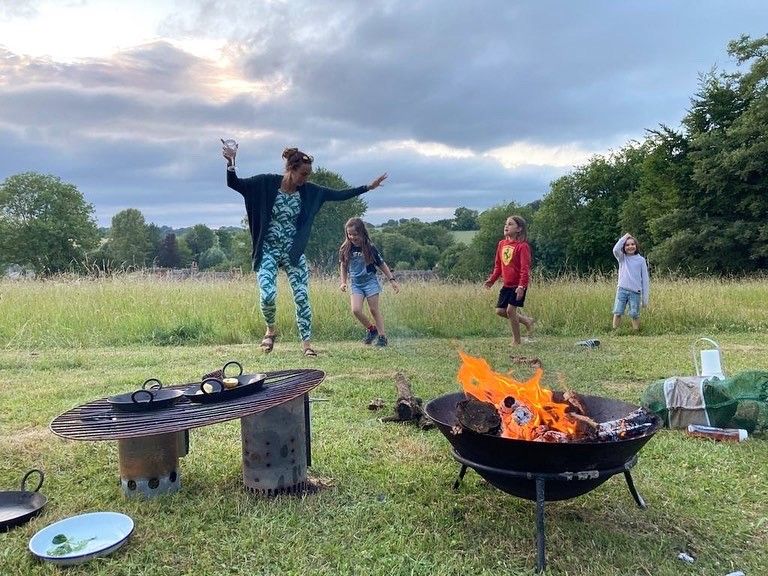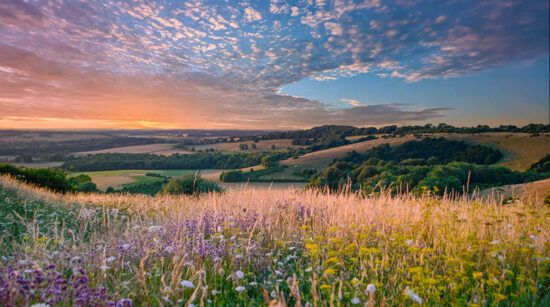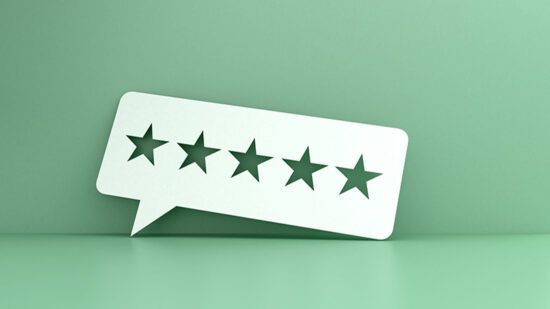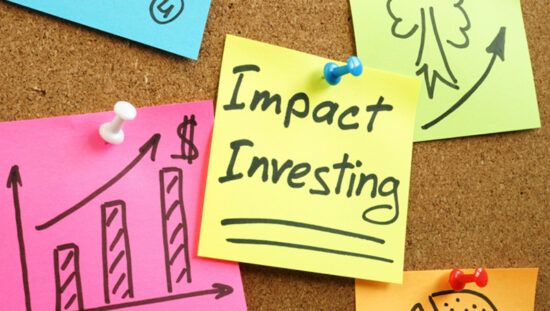In this special summer series, members of the responsible investment industry share their staycations and sustainable holiday activities with ESG Clarity readers.
Following our popular Working from Home with… and A Sustainable Xmas with… series on the back of the Covid-19 pandemic, we wanted to find out how holiday plans have changed – and become more environmentally and socially friendly – in a year where travel abroad is looking challenging.
Here, Kate Rogers, head of sustainability and co-head of charities at Cazenove Capital shares her family break in the field behind her house.

Where are you holidaying this year and with whom? How will you travel there?
Behind our house is a beautiful field perfect for a family camp out. It’s a short journey up the hill to the makeshift campsite. The meadow flowers attract all sorts of beautiful butterflies and we’ve made a den from fallen branches in the woods behind for the kids to play in.
How does this differ from your ‘usual’ holidays?
We do miss travelling further afield, experiencing different places and cultures. Our camping comfort level and food menu can’t compete with a hotel, but we do our best – and the dogs can come too!
It has been a very tough year. How will this holiday help you reset and refresh?
I can say quite confidently that I will not feel refreshed after a weekend camping, however spending proper time with the family ‘off grid’ and in nature is an incredible reset. It forces a slower pace of life and an appreciation of the simple beauty of a summer’s day.

How will you ensure your holiday is environmentally friendly?
I like the motto ‘leave nothing but footprints’. As we’re staying at home our main environmental impact is the emissions from the camp fire – at least the logs are sourced from the woods behind. Waste is minimised, although I still struggle to get it to zero, and we will be feasting on whatever is ready from the veggie patch topped up with lovely organic fruit and vegetables from our Riverford box. My daughter and I are vegetarian, but the rest of my family enjoy meat on the BBQ – we get a ‘meat box’ from Field and Flower which helps us support small-scale, free range farmers that have animal welfare and sustainability at the heart of all they do.

Share some (sustainable) activities you have planned for your staycation?
Our family is obsessed by Kubb, a Swedish game that involves knocking over wooden blocks by throwing wooden batons at them. We will also be enjoying the company of the four donkeys that live on the field and, if the weather is right, we’ll get my favourite kite out.
What’s your holiday reading?
I won’t have much time for reading or space to pack – so I’ll probably slip in my favourite short book; Dear Ijaewele; A feminist manifesto in fifteen suggestions by Chimamanda Ngozi Adichie, which is a letter to a girl explaining how to become a strong and independent woman.
What’s the verdict? Do you think you will be staycationing more in the future? Or are you looking forward to travelling abroad?
The pandemic has reconnected many of us with our local area and community. I’ve certainly appreciated being more present at home and I think that will persist long after Covid is a distant memory. Of course, a change of scenery will be welcomed, once safe, but I’m less inclined to step on a plane or get back into the regular commute to work.
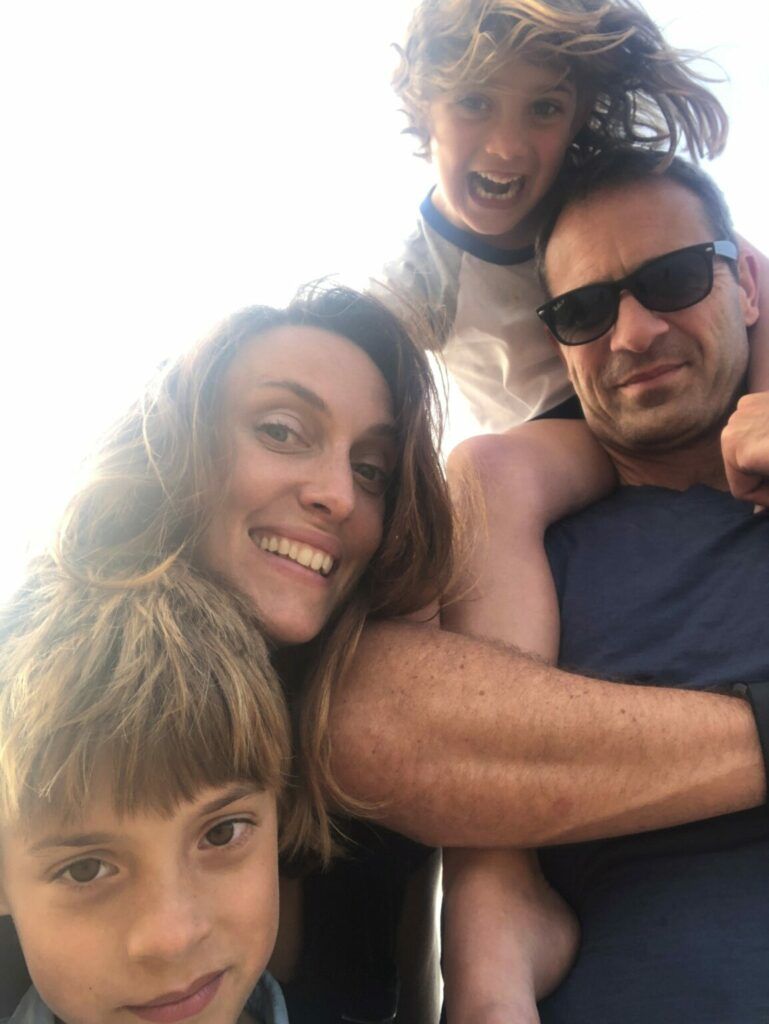
How do you think the Covid-19 pandemic will impact business travel long term?
We now know that we can conduct business effectively in a digital format, but I do think that face-to-face meetings are important as well, for that human connection. I hope we will all think more carefully about our choices, and that businesses will adapt to embrace flexibility where possible. I suspect that business travel will reduce on a daily basis as more of us work at home and that business flights will become increasingly rare as companies are more conscious of the climate crisis.
What’s on your radar for the ESG investment industry for the rest of the year?
The awakening of social consciousness to the climate and ecological crisis has created a real acceleration in government and regulatory action this year. With COP15 in October setting out the plan to protect and restore nature swiftly followed by action on climate change from COP26 in November; I think this policy focus is set to continue. This is important for all investors, as companies will be required to measure and disclose their impacts on the planet; and it will become increasingly clear that not all profits are created equal.
The pandemic has also exacerbated existing inequalities and presented an opportunity to ‘build back better’ – this investment in people and planet should give investors as well as governments a chance to contribute to solutions and I expect to see continued growth in innovative investment products like social impact investment trusts, micro finance funds and conservation finance channelling capital to where it is needed most. Now is the time for action – and I truly believe the investment industry can be part of building a better future.


